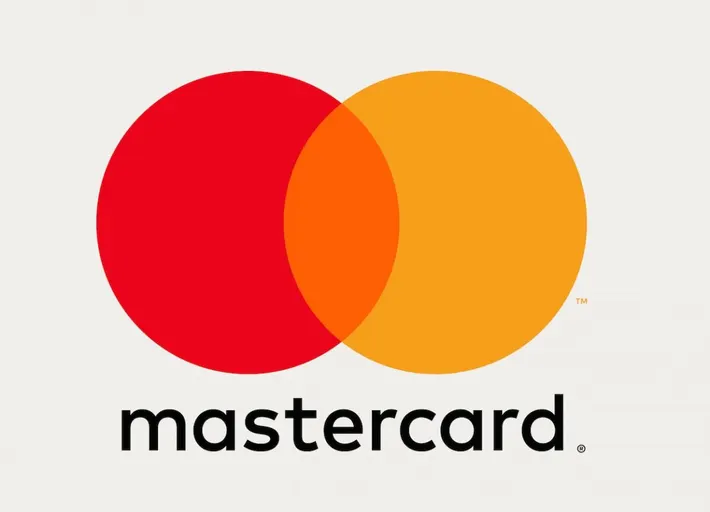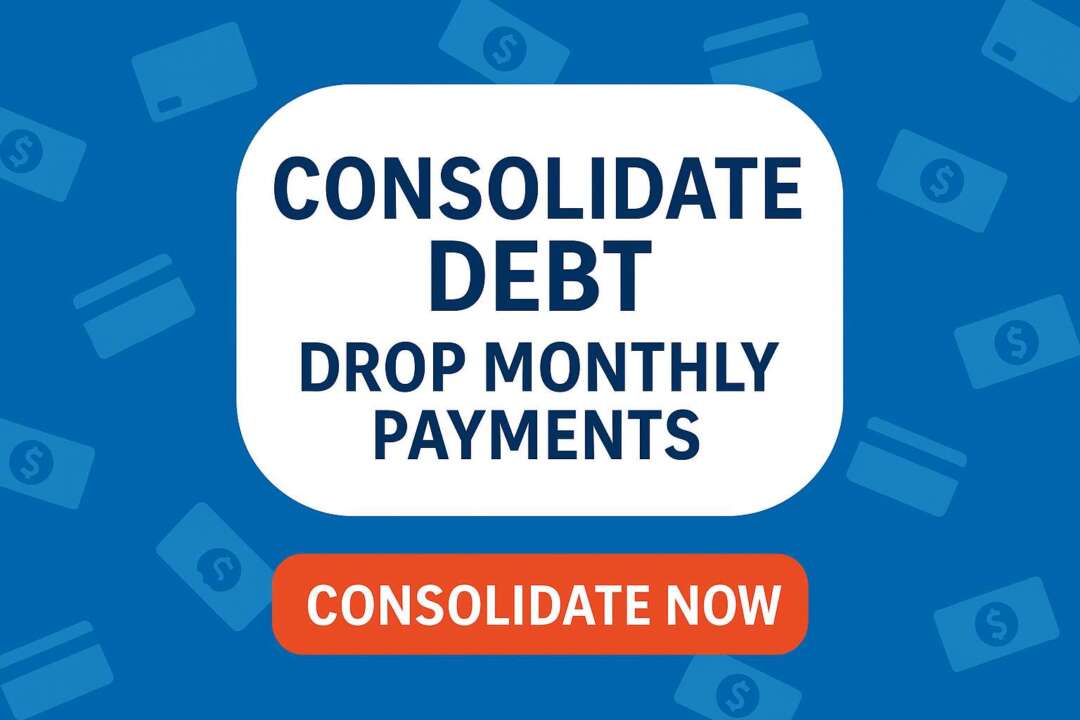How many credit cards should I have?
Credit score research has shown that having at least 3 credit cards can help you improve your credit score. Most people should have at least 3 credit cards, but having more is ok as well. Regardless of the number of credit cards you have, the most important thing to remember is to pay your balance in full every month. Having multiple credit cards is usually a good thing for your credit score. Just as long as you are paying the balance in full every month.
How many credit cards does the average person have?
People have an average of 3-5 credit cards, if they have any cards at all. Almost half of the adults in American don’t have a credit card at all. These people do most of their purchases with a debit card, instead.
How many credit cards should I have for good credit?
Three is the minimum number of credit cards that you want. Three credit cards allows you to build sufficient payment history and gives you a decent total credit limit to help you keep your utilization rate really low. The key with credit cards is to use them correctly!
How many credit cards should I have at 25?
When you are starting out in life, you should have at least one credit card. This let’s you can start building your credit score. Once you have established that you can manage a credit card successfully, you should try and get three total cards so you can build a strong credit score. A good credit score will help you buy a car and house. Good credit even helps lower your insurance rate.
Is 3 too many credit cards?
Having three credit cards is the right number of cards if you want to maintain a strong credit score. Having at least three credit cards will provide enough information on your credit report to show a good history of being able to responsibly handle access to credit.
Is 5 credit cards too many?
Having four, five, six or even seven credit cards can be good for your credit score. The number of credit cards is less important that making sure you are always on-time with the payments and that you do not slide into debt.
If you struggle to keep on top of the payments, then having 5 credit cards is too many.
What are the three reasons you might want to have multiple credit cards? Does having multiple cards build credit faster?
There are three great reasons why having multiple credit cards can help you build a strong credit score:
- It allows you to make lots of on-time payments
- Increases your credit limit which can help you keep your utilization rate low
- Can contribute to a long history of credit when you keep your credit cards for more than two years each.
How many credit cards is too many?
Eight or more credit cards can start to cause an issue because this is where you may start to be viewed as having “too many” open accounts. However, there is no definitie number that’s too many. Paying your balances in full every month and can effectively managing the cards Is what matter. So with 8m or even 28, you’re likely will see little or no negative impact to your credit score.
Will two credit cards build credit faster than one?
Having more than one credit card will build your credit faster than just having one as long as you are using the cards responsibly. Be sure you’re always paying the balance on-time and keeping the utilization rate low. The reason multiple credit cards will build credit faster is that they will report more payments to the credit bureaus. This is the basis for a strong credit score.
Can you have two of the same credit card?
You cannot have two of the same credit cards, but you can ask your credit card company to increase your credit limit. This will allow you to make more charges on the card. But, one of the benefits of having more than one credit card is that more than one payment is reported to the credit bureaus each month. More on-time payments helps your credit score. In order to be able to do that, you will have to get different cards.
Why should I get a credit card?
Credit cards are the easiest way to build and maintain a credit history without incurring finance charges, aka interest and fees. How you ask? First, you need to have credit cards with no monthly or annual fees. Second, you need to pay the statement balance in full every month, not just pay the minimum amount due. If you do this, then you will never be charged interest.
How do credit cards affect credit scores?
If you have at least three credit cards, use them every month, and pay them in full, it will provide strong positive effects on your credit score. These payments are evidence of your responsible use of credit. This means a good credit score which will, in turn, mean lower rates on those big purchases down the road!
Credit scores are built a few things:
- A history of on-time payments and lots of them.
- Low amounts of debt, especially relative to your credit limits also known as your credit utilization rate.
- A long history, particularly individual open accounts with a long history.
Because credit cards are open ended, and can be free from finance charges if you use them wisely, they are ideal for building a history of responsible credit use. As an added bonus, once you have established a history of on-time payments and low utilization, you will not need to get new credit very often because you have all you need. Not having to apply for new credit Is another positive because new credit can hurt your credit score.
What’s the benefit of having multiple credit cards?
Having a single credit card can help build your credit score, but there are three great reasons for having multiple cards.
- Multiple credit cards build a thicker history of on-time payments.
- Multiple credit cards give you access to more credit in case of emergencies.
- Multiple credit cards can help you keep your credit utilization low.
Multiple credit cards build a thicker history of on-time payments
Payments are key to building a good credit history. More payments over time strengthens your credit score. This is why three is a good number of credit cards to have. Multiple accounts reporting on time payments every month creates a pattern of good habits in your credit report. Credit scores and future lenders see this as a positive sign. You will be rewarded with a better credit score and, more importantly, lower rates on any future loan you may need.
Multiple credit cards give you access to more credit in case of emergencies
Having a higher credit limit is good because it gives you additional flexibility in your financial life. For example, if you have an unexpected expense of $2,000 you will be able to cover that without having to go search for a loan. Using the card as an emergency life line will give you time to adjust your finances, move money from savings or investments as needed, or otherwise pay off the debt from the emergency on a timeline that fits your budget.
Multiple credit cards can help you keep your credit utilization low
By having multiple cards, you will have a higher total credit limit than having only one or two cards. If you charge the same amount across these multiple cards instead of on just one card, the percent of your total limit used will be lower. Since this is a major factor in your credit score, this means good things for your credit.
How credit cards affect your credit score
Credit cards will affect your credit score because it is one of the most effective ways of building a history of responsible use of credit. Credit cards positively affect your credit score in the following ways:
- Payments: Payments over time build a history of responsible credit use which is what credit scoring companies look for when they are assigning you a credit score
- Utilization: How much of your available credit that you are currently using (known as utilization) play a key role in the creation of your credit score. The foundation to utilization is revolving, or open, credit. Credit cards are the most common form of revolving credit and so plays a key role in the calculation of your utilization rate.
- Credit history: A long credit history shows potential lenders you can be responsible with credit. Credit cards are an open form of credit which means you have access to that credit even when you don’t need it. This builds a long history of access to credit.
How do you manage multiple credit cards?
Managing multiple credit cards can be a challenge. A single late payment can negatively affect your credit score. Therefore it’s important to make sure your credit card payments are on-time every month.
Making a payment on each card will strengthen your credit card, but that doesn’t mean you need to carry a balance (or carry debt) and it doesn’t mean that you have to make a lot of charges. One small charge a month is all you need to make on each credit card in order to build a history of on-time payments.
Make a single, recurring charge each month on each of your credit cards and then pay that balance in full before the due date.
Here’s an example of how you can manage multiple credit cards
Let’s assume you have 4 credit cards. Then you could take your first credit card and pay for your streaming service each month with it. Put the card on autopay and you will never be late and you can drop that line right into your budget knowing exactly when you will be paying it every month. Do this for 3 more predictable monthly charges and now you are paying your bills and building your credit at the same time. More importantly, it doesn’t change anything in your monthly budget. The cards manage themselves!
| Card | Credit limit | Monthly charge | Charge amount | Card utilization rate |
| Credit card 1 | $500 | Streaming service | $12.99 | 2.6% |
| Credit card 2 | $1000 | Amazon Prime | $14.99 | 1.5% |
| Credit card 3 | $1500 | Gaming subscription | $9.99 | 0.7% |
| Credit card 4 | $500 | Music | $9.99 | 2% |
| Totals | $3500 | $47.96 | 1.4% |
You can also do this with a less predictable bill such as your electric bill that may change every month, sometimes drastically. In this case, you just need to make sure you’re checking your bills every month to make sure you can cover the balance and that you’re not being over charged.
If you like using one or more of your cards for all of your purchases every month so that you can earn miles, points or other rewards, that’s ok too. Continue doing this as normal, and use the strategy above for the extra credit card accounts that don’t offer you rewards.
Are gas or store cards the same as credit cards?
When you are using credit cards to build your credit score, you should not count gas cards or retail store cards in the optimal number of credit cards.
Gas and store cards are called “retail cards” in your credit report details and they are viewed differently by lenders and credit score agencies. While they can help your credit score when paid every month, they are considered less valuable in most instances and will not play as big a role in building your credit score. The reason that these cards are deemed less important in your credit history is because they are not “open loop” cards.
What is the difference between a closed loop and open loop credit card?
What is an open loop credit card?
An open loop credit card is a credit card that can be used anywhere because they belong to a wider payment system. The most common payment systems are Visa, MasterCard, and American Express. If your card has one of those logos on it, it is an open loop card.
What is a closed loop credit card?
Credit cards that can only be used with a single location or brand is a closed loop credit card because you are offered credit only with that retailer. For example, a “My Best Buy Credit Card” cannot be used anywhere but Best Buy and so is considered a closed loop credit card. However, if you have a “My Best Buy Visa Credit card,” with the Visa logo on the front of the card, then this is an open loop card that is sponsored by Best Buy and can be used anywhere.
Are store credit cards worth it? Are closed loop credit cards worth it?
If you have closed loop store cards, you don’t need to rush out and close them, unless they are costing you fees for having them. You might have signed up for one of these cards when the retailer offered you a discount on a purchase, but in the long run, they aren’t terribly useful and could end up costing you hundreds or thousands of dollars. If you have a closed loop credit card, use it sparingly and pay the balance in full. But don’t buy something you don’t need just because you have the card. That’s a good way to get into debt.
Should I get a store credit card?
If you currently don’t have a store credit card, don’t be tempted to get one when a retailer offers one. They are not as useful as a regular credit card and may make you more likely to spend when you don’t really want to.
To know if your card will be counted as a “retail credit card” or a bank credit card, you simply need to look at it. Discover cards, American Express Cards, Diners Club cards, as well as all cards that have the Visa or Mastercard logo on them.
Should I use secured credit cards?
Having and using multiple credit cards at once can help build your credit fast, but should you use a secured credit card? Secured cards are perfectly fine to use as part of your three or more credit cards, especially as you are building your credit score. In case, when you are new to credit or rebuilding your credit score, you may only have access to a secured credit card. That’s ok. Use your secured credit card wisely, and your credit score will improve. As your credit score improves, you will allow you to get better cards that will help you even more in the long run.
For people with no credit or damaged credit, sometimes secured cards are the only option. If you are one of those, try looking for a card that will refund your security deposit and transition into an unsecured card over time and with a good payment history. This will allow you to start where you need to, but give you the opportunity to build and grow your credit and access.
Is a Discover credit card a good card to keep?
Discover is generally a good credit card for most people. The Discover Card typically charges a higher interest rate than most cards but they do not usually charge an annual fee for their cards. The down side to Discover Cards is that they are not as widely accepted as Visa or Mastercard cards. Visa and MasterCard only provide the “rails” for the cards, or the technology for the transactions to be processed. Visa and MasterCard also partner with banks and other lenders to create cards while Discover works directly with people. So, Discover is not as widely used by people and so not all retailers use it. Discover acts as both the lender and the transaction technology which means that it is used by fewer people and retailers.
Should I apply for three credit cards in 2023?
If you have good credit, but no credit cards then you can apply for three credit cards all in 2023. However, applying for multiple credit cards in a short period of time will likely cause a drop in your credit score. While the drop will come within a month or two if you get more than one credit card quickly, your score should recover in a few months. Just don’t run up the balance. And be sure to make on-time payments every month.
Because new credit and age of credit are both factors in a credit score, having multiple credit cards can really help your credit score. One of the reasons for that is that your credit report benefits from having a lot of payments reported to it. The sooner you get the cards and show on-time payments, the better it will be in the long term. Take the negative impact to your score from getting the cards at once, use the cards to super charge your credit, and watch your credit score increase higher than it was before, usually in 6 months.
You don’t need to get multiple credit cards all at once to see the benefit to your credit score, though. If you can only get one card now, that’s ok. Get it. Use it wisely and build your credit. Then get another and keep going until you have a good score!
Should I take advantage of 0% APR?
If you’re not in a hurry to build your credit score fast, you can take advantage of 0% APR credit card offers. Many credit cards offer 0% APR or other low rates to encourage people to get their card and start using it. The 0% APR offer is for a limited time, but it can still be a good idea to take advantage of them if you are careful about how you do it.
Should I take a 0% APR offer if I am already in debt?
Taking advantage of a credit card’s 0% APR introductory financing can actually help you get out of debt faster. Here’s a step-by-step process on how you can use a credit card’s introductory rate to pay down your debt faster:
- Change all your charges and bills to the new card with the introductory rate.
- Pay only the minimum payment on the card with the introductory rate.
- Pay as much as you can toward the credit card balance with the highest interest rate.
This process will allow you to pay off your debts faster by saving money on interest and using that savings to pay off principal.
The most important thing to remember here is that you have to pay more on your existing debt than what you are adding to your new credit card. Do not add new debt! Otherwise you will be worse off than when you started.
What credit cards should I get?
There are a lot of credit cards out there. Some offer airline miles or points for using them. Some credit cards offer cash back or retail benefits. Still others come with different perks. Credit cards can trade some of these benefits for higher fees or a higher interest rate. Making a decision on which credit card to get can be daunting.
Look for no fees
To round out your wallet and have the right number of credit cards, shop for cards that have no fees for simply keeping the card. These fees come with a variety of different names. You’ll know them when you see them: annual fee, monthly fee, etc. These are great for cards you want to hold but really only use once a month. When you are getting credit cards to build your credit score, the lowest cost credit cards are the best.
Consider the type and value of rewards
Rewards cards are excellent for people who use their cards to pay for their everyday purchases and then pay the balance in full every month. Depending on the card and how much you use it. This may be a really valuable item. Some credit cards have usage rewards coupled with bonuses for redemption. This can give you 2% to 3% value in return for usage. If you charge $5,000 a month, then annually this could mean $1,800 in rewards value! To get this value you have to be sure that the card you are using offers the points for the ways you spend and rewards in the ways you will use them. Most cash back offers will not be this good. The highest value is usually from travel rewards cards, but not always.
Always remember, credit cards don’t offer rewards because they are generous. Credit card companies offer rewards to get you to use their card as much as possible. If you don’t want to use the credit card very much then avoid rewards cards! A low-cost, no-fee credit card provides the same credit score value as any other.
How often should you apply for a credit card?
It is important to remember that applying for credit can give your credit score a temporary hit. If you apply for credit cards every couple of months, your credit score will never have a chance to bounce back from the last hard inquiry.
Of course, the best rule of thumb is to only apply for credit cards as often as you really need it.
If I want to increase my credit score using a credit card, why do I have to actually use the credit card?
You have to use the card because an unused card does not register a payment. Therefore, it’s not building credit history and helping your credit score the way it can. By making a purchase and paying the balance in full, you are keeping the card active and registering a payment. That payment is 80% of the reason for having the card. The other 20% is for utilization rates, length of credit history, and financial flexibility.
More importantly, you do not need to carry a balance on any credit card. Do not just pay the minimum due and move on. This will cost you money. Use the card. Pay the balance in full. You need to have at least three credit cards. You should not carry a balance on any of them unless it’s an emergency and you cannot pay off the balance.
Is it bad to not use a credit card?
It is never a bad idea to not use a credit card, but not using a credit card will mean that you aren’t making on-time payments that will get reported to the credit bureaus. Making consistent, on-time payments over a long period of time is the backbone for a great credit score. If you are already carrying a balance on a credit card, you don’t need to continue making charges to the card in order to get credit for the payments you are making on the card. So, if you are trying to improve your credit score and you currently don’t have a balance on the credit card, you may consider making a small recurring charge to the card.
Is it bad to have a lot of credit cards with zero balance?
It’s never a bad thing to have credit cards with zero balances. A zero balance is also great for your credit utilization. It shows you have access to credit and use it responsibly. However, if you are trying to grow your credit score, you want to make sure on-time payments to your open credit lines (such as your credit cards) are being reported to the credit bureau. It is important to recognize that you don’t need to be in debt to do this. Make a small charge to the card and pay the bill in full every month. You will never carry debt on the card, incur no interest expense, and you will get credit for the payment.
Should I close some of my credit cards if I don’t use them?
If you have 100 credit cards, you probably have too many and could to close some of them. In fact, if you have more than 10, you probably have too many. There isn’t an exact number of credit card to have. It’s also impossible to say exactly how many is too many. If you have no issue keeping up with your cards and you are not carrying a balance on any then by definition you don’t have too many.
Managing the cards effectively is the only thing that matters. If you’re at a point where you cannot manage your cards, you need to cut back on them. When looking to cut some cards, here are some ideas for how to choose which ones to close.
- Close ones that you are paying an annual fee for but you are not getting any value for that fee
- Close the card that has the lowest credit limit. This will limit any negative impact to your score.
- Don’t close your oldest 2 cards (unless they are costing you money). These old accounts make up your credit age and help improve your score.
FAQs:
Is an American Express credit card a good card to have?
Yes. American Express operates differently than Visa and Mastercard. It is considered a bank card and an excellent card to have to help you build your credit. American Express offers a number of different types of credit cards. If you’re considering getting one, make sure the card you choose fits your lifestyle.
How many credit cards do I need if I have bad credit?
If you have bad credit, then the number of credit cards you need is three. This is enough for you to improve your credit. It may take some effort to get these cards if you don’t already have some due to your bad credit. Instead of trying to get them all at once, get any card you can. Use it wisely by making one purchase a month and paying the statement balance in full every month. After a few months you should see your credit score go up. Once your score has increased at least 40 points, try to get a better card. Repeat this process until you have at least three good cards that you will be happy with for a long time.
Does a debit card help my credit?
No, debit cards do not help you build credit. They are fantastic tools for managing your money. More importantly, using your debit card for most transactions is a good way to stay out of debt. But they are not credit. They do not report payments to credit bureaus, and they do not help you build your credit score.
Key credit card Terms
Open Loop Credit Card: Also referred to as a bank card. This is a credit card that can be accepted as payment for any business that accepts the credit card network. This includes Visa and Mastercard.
Closed Loop Credit Card: Also referred to as a retail card. This is a credit card that can only be used at a specific retailer. For example Best Buy, Home Depot, and Kohls offer closed loop credit cards.
Credit Card Utilization Rate: This is the percent of your available credit that you are using. To determine this, add up the total outstanding balance on your credit cards. Then add up the credit limits of all your credit cards. Divide the total balance by the total of the credit limits then multiply by 100.
Credit Limit: The maximum amount that you can charge on your credit card.
Payment History: The monthly record of your payments on all of your credit accounts that are reported to a credit bureau.






























